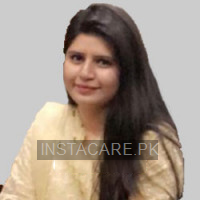Expressive Language Disorder - Symptoms, Risk factors and Treatment
Last Updated On Tuesday, October 22, 2024
Expressive Language Disorder in Urdu
اظہاری زبان کی خرابی ایک ایسی حالت ہے جس میں بولنے، لکھنے، یا ہاتھ کے اشاروں کے ذریعے اپنے آپ کو ظاہر کرنے کی کسی فرد کی صلاحیت خراب ہو جاتی ہے۔ ایسے افراد کو الفاظ کو صحیح طریقے سے تلاش کرنے اور استعمال کرنے میں پریشانی ہوتی ہے۔ تاثراتی زبان کے عارضے میں مبتلا افراد یہ سمجھ سکتے ہیں کہ دوسرے کیا کہہ رہے ہیں (اگر وہ زبان کے ادراک کے عارضے سے وابستہ نہیں ہیں) لیکن وہ اپنے آپ کو جیسا چاہتے ہیں اس کا اظہار نہیں کرسکتے ہیں۔
اظہاری زبان کی خرابی مایوس کن ہوسکتی ہے اور بچے میں خود اعتمادی کو کم کرنے کا سبب بن سکتی ہے۔ ایسے بچے اپنے خیالات اور خیالات کا اظہار کرنے میں ناکامی اور دوسروں کے ساتھ بات چیت کرنے میں دشواری کی وجہ سے سماجی طور پر پیچھے ہٹ سکتے ہیں۔ لیکن اسپیچ تھراپی سے یہ خرابی بہت بہتر ہو سکتی ہے اور بچے کو اس چیلنج سے نمٹنے میں مدد مل سکتی ہے۔ اگر آپ اپنے بچے میں اوپر بیان کردہ علامات کو دیکھتے ہیں، تو یہ مشورہ دیا جاتا ہے کہ آپ اپنے اسپیچ لینگویج پیتھالوجسٹ سے ملیں۔
Expressive Language Disorder in English
Expressive language disorder is a condition in which an individual’s ability to express themselves through speaking, writing, or hand gestures is impaired. Such individuals have trouble finding and using words in the right way. Individuals with an expressive language disorder can understand what others are saying (if not associated with receptive language disorder) but can’t express themselves as they want to.
What causes an expressive language disorder?
The exact cause of expressive language disorder is unknown. But sometimes, it can be associated with different developmental diseases such as autism, down syndrome, etc.
Mostly, expressive language disorders are developmental. But they can occur later in life due to brain injuries such as stroke.
Sometimes, an expressive language disorder may be associated with a receptive language disorder - a condition in which a person has difficulty understanding spoken or written language.
Expressive language disorder can also be due to hearing impairment as children learn to speak by hearing other people.
Problems with communication:
Individuals with receptive language disorder have a hard time communicating with others. They have trouble expressing their thoughts and ideas to others which causes them to be socially withdrawn. They may not be able to make friends and have relationships. It can be upsetting and frustrating to the individual and can even cause depression.
Does expressive language disorder have something to do with low intelligence?
Expressive language disorder is not due to low intelligence level. It is just a problem with expressing language. Such children may not be able to demonstrate their intellectual capabilities and ideas properly, but they are just as smart as other children in their age group.
Is expressive language disorder a speech disorder?
Expressive language disorder is not a speech disorder and has nothing to do with speaking and producing different sounds. It’s a problem that arises from the brain.
Signs of expressive language disorder:
The signs of receptive language disorder start to appear by a young age, and such children may start talking late as compared to children of their age group. The signs may include:
- Trouble finding the right word to speak
- Using small sentences when speaking
- Using wrong grammar such as using the wrong tense
- Having a less-than-average vocabulary
- Repeating words and phrases again and again
- Trouble starting a conversation
- Trouble holding a conversation
- Trouble retelling a story in their own words
- Using wrong words in sentences
- Mixing up different words and their meanings
Diagnosis of espressive language disorder:
A speech-language pathologist can diagnose receptive language disorder. If you notice your child shows the above-mentioned signs or has difficulty speaking, or started to speak later than children of their age group, you should consult a speech-language pathologist. The speech pathologist may also suggest a hearing test to see if the disorder is due to hearing impairment.
Treatment of expressive language disorder:
After an expressive language disorder has been diagnosed by a speech-language pathologist, the treatment usually involves language therapy sessions. In language therapy, they may help a child to learn new vocabulary by rehearsing again and again and properly using that vocabulary to express themselves. It may also involve teaching a child different gestures to express themselves better.
Conclusion:
Expressive language disorder can be frustrating and may cause low self-esteem in a child. Such children may become socially withdrawn due to their inability to express their thoughts and ideas and having problems communicating with others. But with speech therapy, the disorder can get a lot better and help a child cope with this challenge. If you notice the signs mentioned above in your child, it is advisable to visit your speech-language pathologist.


